If you’re looking for public speaking tips, you’ve come to the right place! Here you’ll find advice and information on everything from overcoming fear of public speaking to connecting with your audience.
These Tips are also available in a beautifully-designed, fully searchable download called 100 Top Public Speaking Tips: The Book. Coded around five major areas — Body, Mind, Skills, Audience, and Career — the book can go with you when you’re off-line.
So explore these Tips individually, or read them all. But whichever way you like your Top Tips presented, be sure to enjoy learning more about public speaking!
Public Speaking Tip 1: Lose that Scorecard in Your Mind
Don’t aspire to public speaking perfection. It’ll trip you up — plus, there’s no such thing! Lose that scorecard.
Public Speaking Tip 2: To Be a Better Public Speaker,
Give a Small “Speech” Every Day
The line between public speaking and regular talk is thinner than you think. In fact, you can practice public speaking (and increase your skills) during regular conversations — and no one will ever know! Give your small speech.
 Public Speaking Tip 3: Make Public Speaking Practice a Game
Public Speaking Tip 3: Make Public Speaking Practice a Game
Public speaking is part of everyday life — and you can make public speaking practice part of your daily life, by playing this game. Make it a game.
Public Speaking Tip 4: Writing “Rules” Aren’t for Public Speaking
The rules for writing that you may have learned in high school are rarely right for public speaking. Instead, write to speak in a way that reflects your natural conversation style. Lose the rules.
Public Speaking Tip 5: Want to Be a GREAT Public Speaker?
Be Yourself!
No one else can tell your story, or speak from your heart. That’s why the most powerful speeches always comes from people who are being themselves. Be yourself!
Public Speaking Tip 6: Don’t Worry, You WILL Make Mistakes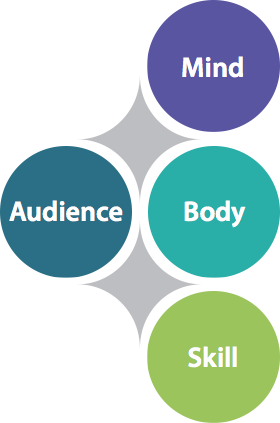 !
!
Every public speaker makes mistakes! If you hate that reality (and even if you don’t), here are some strategies to quickly recover from the inevitable imperfections. Get ready to recover.
Public Speaking Tip 7: For Kick-Ass Public Speaking,
Forget About Words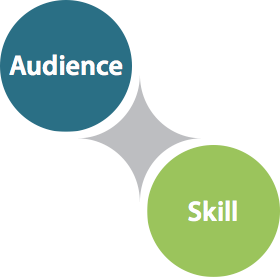
Words have their place in public speaking, but it’s a much smaller place than most people assume. So instead of worrying about individual word choices, focus on your ideas and your connection with the audience. Forget the words.
Public Speaking Tip 8: Want to Give a Powerful Speech?
Start By Telling Yourself the Truth
It isn’t always possible to tell “the truth, the whole truth, and nothing but the truth” at work. But if you start by being honest with yourself, it’s easier to find a compromise you can live with. Tell yourself the truth.
Public Speaking Tip 9: It’s Just a Feeling, so Embrace the Stress
What, besides experience, is the biggest difference between veteran and newbie public speakers? Both groups experience stress, nerves, even fear; but the veterans aren’t thrown by those feelings — and you don’t have to be, either. Embrace the stress.
Public Speaking Tip 10: For Public Speaking Phobia, Get Help
Is your fear of public speaking a phobia? Or is it in the the mild-to-heavy anxiety range that most of us feel when we make a presentation? Here’s what to do when the fear is more than fear. Got phobia?
Public Speaking Tip 11: Ask for Information Before You Agree to Speak
Before you agree to give a speech, ask for information about everything. Time, place, audience size and composition, topic, your fee, of course. Everything! Ask.
Public Speaking Tip 12: Listen to Your Audience (Part 1)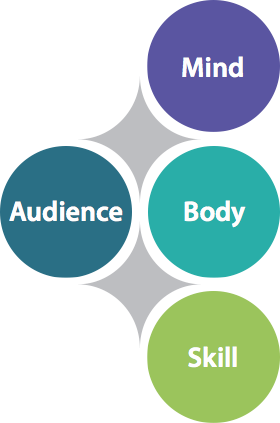
Great public speaking isn’t just — or even primarily — about what you say. Your ability to LISTEN is equally important. Here are some tips for listening better to become a better public speaker. Listen better.
Public Speaking Tip 13: Listen to Your Audience (Part 2)
Listening to one person can be hard work — and listening to an AUDIENCE can really seem daunting. But if you stop, look, and focus on their cues, you’ll find that the mood of your audience isn’t all that hard to “hear.” Listen even more!
Public Speaking Tip 14: Learn from Babies, the World’s Best Communicators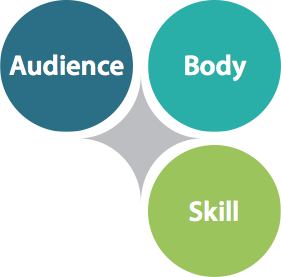
Adults often approach public speaking with fear, self-doubt, and inhibition, but babies just open their mouths and speak their minds. We could learn plenty from watching them. Learn from babies.
Public Speaking Tip 15: Know When to Lose Your Script
Public speaking situations can change, and when they do, you may find yourself having to choose between adjusting your speech, changing its context, or totally abandoning your script. Adjust your speech!
Public Speaking Tip 16: When It Comes to an Audience’s Reaction, Forget about Control
Wouldn’t it be great if we could speak with such mastery that a positive reaction was guaranteed? Unfortunately, things don’t work that way — people will respond as they see fit, not as we want them to. But the good news is that audiences are generally on the speaker’s side. Give up control.
Public Speaking Tip 17: Savor Your Speech, Giving Every Moment It’s Due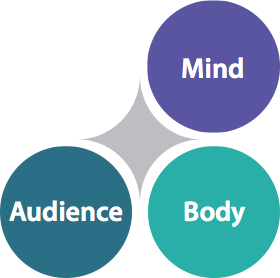
Savor your speech, giving each moment its due, and the fear that made you want to sprint toward the finish line will dissolve. Savor your speech.
Public Speaking Tip 18: Your Accent Doesn’t Matter — Speaking Clearly, Does!
Many people who come to the U.S. from other countries are concerned that their accent makes them hard to understand. But if you organize your thoughts, speak slowly and clearly, and leave pauses so that people can absorb one idea before hearing the next, listeners will almost always understand you. Accents are fine.
Public Speaking Tip 19: Master the Instant Speech (It’s Easy!)
Wouldn’t it be great if there was a simple and flexible five-sentence format that made every idea sound better? There is; and it’s called the Instant Speech. Make Instant Speeches!
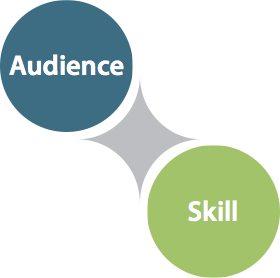 Public Speaking Tip 20: If You Make a Public Speaking Mistake, Don’t Explain
Public Speaking Tip 20: If You Make a Public Speaking Mistake, Don’t Explain
If you make a public speaking mistake, don’t explain. We all make mistakes, and your best move is to acknowledge, apologize if necessary, and move on! Don’t explain.
Public Speaking Tip 21: For Great Public Speaking, Go To the Edge of Defeat
Public speaking always offers the choice of whether to present your material in a way that’s predictably safe, a little more flexible, or right at the high-risk edge of defeat. And sometimes, it’s worth taking a risk. Jump!
Public Speaking Tip 22: For Public Speaking Power, Breathe OUT, Not In!
To get your fill of air — a critical element in any public speaking situation — learn to breathe OUT before you breathe in. Here’s how. Breathe out.
Public Speaking Tip 23: For Public Speaking Success, Be Audible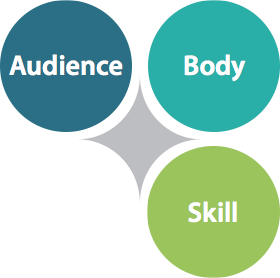
Listening is hard work! But you can make it easier for an audience to understand and remember what you’re saying by being easier to hear. Be audible.
Public Speaking Tip 24: Write an Email that Gets Read
It’s not enough to write a great email. You have to get the other person to open it up! Here’s how to get your email read. Get your email read.
Public Speaking Tip 25: Use a Simple Key Message to Make Your Most Important Point
A simple key message is the heart and soul of any speech. It will help you make your point with elegance, clarity, and confidence. Keep it simple.
Public Speaking Tip 26: Uhm, Lose Those, Like, Filler Words, Y’Know?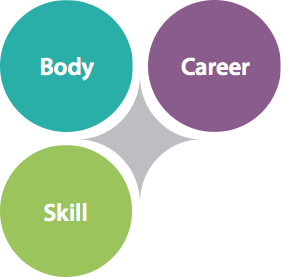
Uhm, it’s clear that, people who, like, fill up every available space with sounds that, y’know, have no meaning are just sort of forgetting to add the silence. Add silence.
Public Speaking Tip 27: Know Your Dress Codes
Like it or not, we’re all judged on how we look. So when you’re interviewing for a job, or presenting to a business audience, be sure that you know what looks professional to them. Look professional.
Public Speaking Tip 28: Use a Template for Public Speaking
Public speaking templates can save you time, effort, and anxiety, whether you’re making a speech or writing a thank you note. Use templates.
Public Speaking Tip 29: The Word YOU Helps You Connect with Your Audience
The word YOU is magic. It helps you connect with your audience, and let’s THEM know that you relate to their needs, goals, and situation. Use the word YOU.
Public Speaking Tip 30: Want to Be a Great Public Speaker? It’s a Process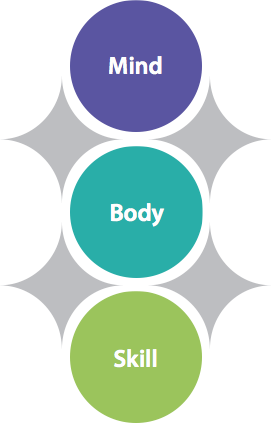
The public speaking process — the process of becoming the public speaker YOU want to be — is mental, physical, social, and individual to you. Start the process.
Public Speaking Tip 31: Want People to Listen? Add Some Drama
If you’ve been practicing the flat, gray speech that’s standard in many businesses and professions, it’s time to stop! Instead, delight yourself and your listeners by adding a touch of drama when you speak. Be dramatic!
Public Speaking Tip 32: For Great Public Speaking, Be Miserable (Not!)
Want to be a great public speaker? Be miserable! OK, not really; but thinking about how to be miserable as a public speaker can help you be the opposite. Be miserable.
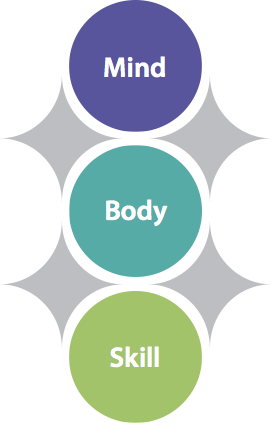 Public Speaking Tip 33: Don’t Panic about Public Speaking Panic
Public Speaking Tip 33: Don’t Panic about Public Speaking Panic
Most of us feel some level of public speaking panic from time to time. Don’t make things worse by assuming this means there’s something wrong with you. Don’t panic.
 Public Speaking Tip 34: Lead Your Audience Through Your Speech
Public Speaking Tip 34: Lead Your Audience Through Your Speech
Lead your audience through your speech, just like a tour guide would — taking them from idea to idea until you deliver them at your conclusion. Lead your audience.
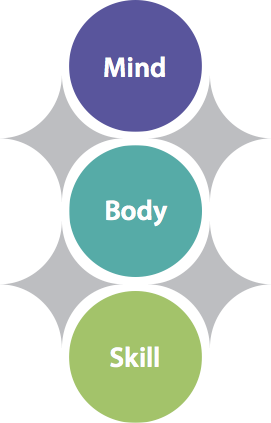 Public Speaking Tip 35: Treat Your Speech Like a Five-Course Tasting Menu
Public Speaking Tip 35: Treat Your Speech Like a Five-Course Tasting Menu
Would you rather savor five-course tasting menu, or plow your way through a plate of hash? Well, it’s important to savor each “course” of a presentation, too! Savor Your Speech
 Public Speaking Tip 36: Use the “Three Audience Questions” to Make Sure People Know What You’re Talking About
Public Speaking Tip 36: Use the “Three Audience Questions” to Make Sure People Know What You’re Talking About
We all get a little wonky in our own areas of expertise. So use the “three audience questions” to make sure people understand what you’re talking about. Don’t wonk out!
 Public Speaking Tip 37: At Every Stage of Public Speaking, Put Your Focus On The Right Thing
Public Speaking Tip 37: At Every Stage of Public Speaking, Put Your Focus On The Right Thing
As a public speaker, you can focus on yourself, your content, or your audience — and putting the right amount of focus in the right place at the right time is important for your success. Focus!
 Public Speaking Tip 38: Tell Success Stories, Because If You Don’t Talk About Your Achievements, Who Will?
Public Speaking Tip 38: Tell Success Stories, Because If You Don’t Talk About Your Achievements, Who Will?
Lots of people hate to “brag” about their accomplishments. But you can tell success stories without being obnoxious about it! Tell success stories
 Public Speaking Tip 39: Don’t Let Career Building Screw Up Your Public Speaking
Public Speaking Tip 39: Don’t Let Career Building Screw Up Your Public Speaking
As a young professional, you’ll feel lots of pressure to develop a bland public speaking style. But that could hold you back as your career develops. Build your public speaking style.
 Public Speaking Tip 40: Answer Questions Without Boring Your Listener, or Know When to Stop Talking
Public Speaking Tip 40: Answer Questions Without Boring Your Listener, or Know When to Stop Talking
It’s easy to go on and on when you’re tired, nervous, or passionate about your topic. But try to stop talking before your listener stops caring! Stop talking.
 Public Speaking Tip 41: Repeat, Repeat, Repeat Yourself
Public Speaking Tip 41: Repeat, Repeat, Repeat Yourself
Were you told in high school English class that you should never repeat yourself? For public speaking, forget that rule and repeat yourself a lot! Repeat yourself.
 Public Speaking Tip 42: When People Say Your Speech Was Great, Believe Them!
Public Speaking Tip 42: When People Say Your Speech Was Great, Believe Them!
People often doubt the positive feedback they get when they’ve given a speech. Believe it!
 Public Speaking Tip 43: Want to Minimize Negative Reactions? Vaccinate Your Audience
Public Speaking Tip 43: Want to Minimize Negative Reactions? Vaccinate Your Audience
Just as we vaccinate against disease, you can vaccinate your audience against reactions that may stop them from hearing your message. Vaccinate!
 Public Speaking Tip 44: Make Small Talk in Business Settings Using the “Respond and Return” Technique
Public Speaking Tip 44: Make Small Talk in Business Settings Using the “Respond and Return” Technique
When you make small talk, you’re helping to build strong business relationships. Here’s an easy, two-step process for mastering the skill. Respond and return.
 Public Speaking Tip 45: Why You Should Answer the Question First (and Then Decide How Much More to Say)
Public Speaking Tip 45: Why You Should Answer the Question First (and Then Decide How Much More to Say)
Answer the question first to relax your listener, be concise, and give yourself flexibility in any situation. Answer first.
 Public Speaking Tip 46: How to Answer the Question, Even When That Feels Hard To Do
Public Speaking Tip 46: How to Answer the Question, Even When That Feels Hard To Do
It’s not hard to answer the question once you decide that you really don’t have to know everything. Go ahead, answer!
 Public Speaking Tip 47: Fear of Public Speaking? Use YOU Language and an Avatar to Create Distance from Fear
Public Speaking Tip 47: Fear of Public Speaking? Use YOU Language and an Avatar to Create Distance from Fear
Public speaking is scary. But you can manage fear of public speaking by distancing yourself from your emotions, with these two simple and highly effective techniques. Manage your fear.
 Public Speaking Tip 48: For Public Speaking Success, Keep the Glass Half Full of Honey, Not Vinegar
Public Speaking Tip 48: For Public Speaking Success, Keep the Glass Half Full of Honey, Not Vinegar
Whenever it’s possible to speak positively and appreciatively about your audience, do it! Criticizing their shortcomings won’t win you any friends; and even if you’re the boss, negative messages don’t generally lead to positive changes. Be positive.
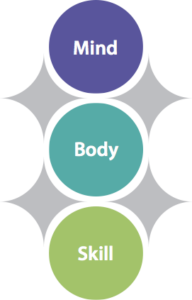 Public Speaking Tip 49: For Public Speaking Success, Don’t Practice in Public (Shed on the Stand)
Public Speaking Tip 49: For Public Speaking Success, Don’t Practice in Public (Shed on the Stand)
When you give a speech that you haven’t worked on, you’re subjecting your audience to a practice session. Don’t shed on the stand!
 Public Speaking Tip 50: For Sustainable Success, Set a SMART Public Speaking Goal You Can Achieve
Public Speaking Tip 50: For Sustainable Success, Set a SMART Public Speaking Goal You Can Achieve
Want to become a better public speaker? Have a SMART public speaking goal. Get SMART!
 Public Speaking Tip 51: If You’re Reading a Speech, Read with Pride; Don’t Hide!
Public Speaking Tip 51: If You’re Reading a Speech, Read with Pride; Don’t Hide!
Today, many public speakers don’t want to read their speeches, and especially not from PAPER. But reading can help you give an even better speech! Read with pride.
 Public Speaking Tip 52: Be an Entitled Public Speaker, No Matter What Social Class You Come From
Public Speaking Tip 52: Be an Entitled Public Speaker, No Matter What Social Class You Come From
The social class you come from can influence many things in your life, including whether you feel entitled to speak up and be heard by others. Be entitled!
 Public Speaking Tip 53: Learn from Amy Cuddy, and Fake It Till You Become It
Public Speaking Tip 53: Learn from Amy Cuddy, and Fake It Till You Become It
Amy Cuddy’s research could change how you feel about public speaking, and yourself! Become your best self.
 Public Speaking Tip 54: For Relaxed Public Speaking, Relax Your Throat
Public Speaking Tip 54: For Relaxed Public Speaking, Relax Your Throat
Public speaking can stress your voice. Here are some techniques for protecting your pipes, so that you and your voice can both go the distance. Take care of your voice.
 Public Speaking Tip 55: If Your Job Involves Serving the Public, Talk WITH Your Customers, Not AT Them (or: A Tale of Two Servers)
Public Speaking Tip 55: If Your Job Involves Serving the Public, Talk WITH Your Customers, Not AT Them (or: A Tale of Two Servers)
Build a relationship with your customers by engaging them, and listening to what they say. Listen to your customers!
 Public Speaking Tip 56: When You Disagree with Someone, Rebut Their Ideas, Not Them
Public Speaking Tip 56: When You Disagree with Someone, Rebut Their Ideas, Not Them
When passions run high, it’s easy to slip into attacking your opponent. Instead, keep your tone friendly and light, and rebut their ideas, not their value as a person. Rebut ideas, not people.
 Public Speaking Tip 57: How to Develop Executive Presence
Public Speaking Tip 57: How to Develop Executive Presence
It’s not enough to have great skills and a strong work ethic. You also need Executive Presence, the quality that telegraphs your strengths to others. Develop executive presence.
 Public Speaking Tip 58: For a Confident and Successful Presentation, Stand, Settle, Smile, Speak
Public Speaking Tip 58: For a Confident and Successful Presentation, Stand, Settle, Smile, Speak
A lot of public speakers are off-balance at the start of their talks. When you take the stage to give a speech, use the Stand, Settle, Smile, Speak method to make sure you start strong. Stand, settle, smile, speak!
 Public Speaking Tip 59: At the End of Your Speech, Stick Your Landing
Public Speaking Tip 59: At the End of Your Speech, Stick Your Landing
It’s easy to lose energy after giving an entire speech, and let your ending (or your Q&A, or even your main message) dribble off or fade away. Don’t do that! Stick your landing.
 Public Speaking Tip 60: When You Practice Public Speaking, Say Inconsequential Things
Public Speaking Tip 60: When You Practice Public Speaking, Say Inconsequential Things
As a speaker, you want to say things that matter. But when you’re PRACTICING your public speaking skills, it’s just as useful to say inconsequential things. Be inconsequential.
 Public Speaking Tip 61: How to Speak Up More in Meetings, Even If You Say Inconsequential Things
Public Speaking Tip 61: How to Speak Up More in Meetings, Even If You Say Inconsequential Things
In a meeting, don’t wait for the most profound, perfect, or articulate comment to occur to you. Just talk! Speak up.
 Public Speaking Tip 62: Talk About Inconsequential Things When You Make Small Talk
Public Speaking Tip 62: Talk About Inconsequential Things When You Make Small Talk
It’s hard for many of us to talk about inconsequential, simple, silly, or obvious things. But small topics work best for small talk; here’s why. Keep it small.
 Public Speaking Tip 63: Keep Your PowerPoint Short, Sweet, and Simple
Public Speaking Tip 63: Keep Your PowerPoint Short, Sweet, and Simple
PowerPoint is a useful and effective tool, if you keep it short, sweet, and simple. Keep it simple.
 Public Speaking Tip 64: Don’t Listen to the Self-Critical Voice in Your Head
Public Speaking Tip 64: Don’t Listen to the Self-Critical Voice in Your Head
Is there a nasty little voice in your head that loves to criticize your public speaking skills? Here’s how to beat the NLV. Don’t listen!
 Public Speaking Tip 65: You Know You Should Practice, for Great Public Speaking! But HOW??
Public Speaking Tip 65: You Know You Should Practice, for Great Public Speaking! But HOW??
If you have trouble practicing a speech or talk, it may be because you don’t know HOW or WHAT to practice. These tips and tricks will help! So practice!
 Public Speaking Tip 66: Choose a Networking Strategy that Works for YOU, Whether You’re an Introvert or an Extravert
Public Speaking Tip 66: Choose a Networking Strategy that Works for YOU, Whether You’re an Introvert or an Extravert
There isn’t one right approach to networking. The best networking strategies, practices, goals, and actions are the ones that work best for YOU. Go network!
 Public Speaking Tip 67: Give Your Smile Muscles a Workout
Public Speaking Tip 67: Give Your Smile Muscles a Workout
Nothing helps you connect with an audience like a smile! To be sure your smile is always at the ready, give your smile muscles a workout. Smile!
 Public Speaking Tip 68: To Make Your Words More Memorable, Put Pauses In Your Public Speaking
Public Speaking Tip 68: To Make Your Words More Memorable, Put Pauses In Your Public Speaking
Pauses are one of your most important, dramatic, relaxing, and versatile public speaking tools. Practice using pauses.
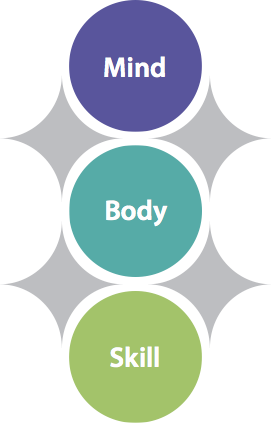 Public Speaking Tip 69: Copy Other Speakers, and Steal Their Secrets
Public Speaking Tip 69: Copy Other Speakers, and Steal Their Secrets
Copy other speakers so that you can learn their secrets — how they pace, pause, build their ideas, and sell them. Then go out and speak like yourself! Copy.
 Public Speaking Tip 70: Use Pictures In Your Slides (They’re Worth Way More than 1000 Words!)
Public Speaking Tip 70: Use Pictures In Your Slides (They’re Worth Way More than 1000 Words!)
Even simple, silly pictures can make your slides engaging, when they’re personal. Use pictures.
 Public Speaking Tip 71: To Get POWER from Your PowerPoint…Transition, Click, and Pause
Public Speaking Tip 71: To Get POWER from Your PowerPoint…Transition, Click, and Pause
A simple and fun way to add power to your slide decks is by learning how to transition, and taking your audience along with you. Transition.
 Public Speaking Tip 72: Small Talk? It’s Not Hard to Master When You Understand It
Public Speaking Tip 72: Small Talk? It’s Not Hard to Master When You Understand It
Small talk isn’t a conversation, it’s the warm-up for a conversation. Here’s how to master it. Make small talk.
 Public Speaking Tip 73: Build Your Confidence and Public Speaking Success in 15 Seconds, Twice a Day
Public Speaking Tip 73: Build Your Confidence and Public Speaking Success in 15 Seconds, Twice a Day
What if you could build your public speaking confidence and success with an exercise that took 15 seconds? You would do that, right? Build your confidence!
 Public Speaking Tip 74: Millennials, Slow Down and Help Your Older Colleagues Understand You
Public Speaking Tip 74: Millennials, Slow Down and Help Your Older Colleagues Understand You
Millennials speak quickly, and can leave older listeners in the dust. Here’s how to slow down so that your older colleagues understand you. Slow down!
 Public Speaking Tip 75: Learn How to Run Effective Business Meetings
Public Speaking Tip 75: Learn How to Run Effective Business Meetings
What’s rarer than a unicorn? Effective business meetings. But you can learn to run them with these tips and a few minutes of advance planning. Run effective meetings.
 Public Speaking Tip 76: Public Speakers, Avoid Common PowerPoint Mistakes
Public Speaking Tip 76: Public Speakers, Avoid Common PowerPoint Mistakes
It’s easy to avoid common PowerPoint mistakes and make your audience happy. Avoid these mistakes.
 Public Speaking Tip 77: Want to Be Relaxed, Consistent, and Effective Every Time You Speak in Public? Focus on the People You’re Talking To
Public Speaking Tip 77: Want to Be Relaxed, Consistent, and Effective Every Time You Speak in Public? Focus on the People You’re Talking To
To give a great performance every time you speak in public, focus on the person or people you’re talking to, not on yourself. Focus!
 Public Speaking Tip 78: To Know Your Audience is to Love Your Audience
Public Speaking Tip 78: To Know Your Audience is to Love Your Audience
If your audience seems very different from you, look deeper. You may have more in common than you think! Learn about your audience.
 Public Speaking Tip 79: Petite and Female? Your Size is No Obstacle to Being Heard!
Public Speaking Tip 79: Petite and Female? Your Size is No Obstacle to Being Heard!
Many petite women, like Supreme Court Justice Ruth Bader Ginsburg, have an outsized impact, proving that true power knows no size. Women, power up!
 Public Speaking Tip 80: The Right Apology Makes Both People Feel Better (Even If You Don’t Think You’ve Done Wrong!)
Public Speaking Tip 80: The Right Apology Makes Both People Feel Better (Even If You Don’t Think You’ve Done Wrong!)
We all make mistakes. Fortunately, it’s not hard to give an apology that helps BOTH parties feel better. Apologize.
 Public Speaking Tip 81: Close With Your Key Message. And if Your Speech is Followed by Q&A, Do It Twice!
Public Speaking Tip 81: Close With Your Key Message. And if Your Speech is Followed by Q&A, Do It Twice!
Every time you speak, remember to close with your key message — and if your speech is followed by Q&A, do it twice! Close twice.
 Public Speaking Tip 82: Don’t Let the TED Talk Style Intimidate You, or Stand Between You and Making a Good Speech
Public Speaking Tip 82: Don’t Let the TED Talk Style Intimidate You, or Stand Between You and Making a Good Speech
It takes tremendous effort to create the smooth professionalism of a TED talk, and it’s not fair to expect business speakers to reach the same bar. Give a good enough speech.
 Public Speaking Tip 83: Learn To Tell a Good Business Story (Part I)
Public Speaking Tip 83: Learn To Tell a Good Business Story (Part I)
Learning to tell a good business story isn’t hard, and it’s a a useful skill for growing your career. Learn business storytelling.
 Public Speaking Tip 84: Learn to Tell Good Business Stories (Part II)
Public Speaking Tip 84: Learn to Tell Good Business Stories (Part II)
Good business stories, like good wine, gain richness and depth as you practice and tell them. Tell your business stories now.
 Public Speaking Tip 85: Put Down that Editing Pen!
Public Speaking Tip 85: Put Down that Editing Pen!
Editing your speech is helpful, up to a point. Then it’s time to stop editing and start practicing. Drop that pen and practice!
 Public Speaking Tip 86: Don’t Talk About Your Co-Workers on Facebook
Public Speaking Tip 86: Don’t Talk About Your Co-Workers on Facebook
Facebook can make it seem like a conversation is private, but IT’S NOT. So use extra restraint when discussing your colleauges, or better yet, don’t do it! Watch out for Facebook.
 Public Speaking Tip 87: Speaking Properly is a Game, Not a Measure Of Your Value As a Person
Public Speaking Tip 87: Speaking Properly is a Game, Not a Measure Of Your Value As a Person
Speaking properly has nothing to do with being a good, smart, or valuable person. It’s a series of skills you can acquire, and a game you can master. Master the game!
 Public Speaking Tip 88: Three Questions to Ask BEFORE You Memorize Your Speech
Public Speaking Tip 88: Three Questions to Ask BEFORE You Memorize Your Speech
Should you memorize your speech? That depends! Ask before you memorize.
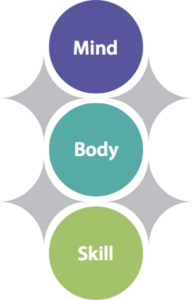 Public Speaking Tip 89: Learn the Public Speaking Lessons of Orphan Black (Hint: It’s All About Your Avatar)
Public Speaking Tip 89: Learn the Public Speaking Lessons of Orphan Black (Hint: It’s All About Your Avatar)
Orphan Black is outstanding entertainment, and it has surprising lessons to teach everyone who speaks in public (meaning, all of us!). Embrace your Avatar(s).
 Public Speaking Tip 90: Cultivate the Greatest Public Speaking Skill of All, Self-Acceptance
Public Speaking Tip 90: Cultivate the Greatest Public Speaking Skill of All, Self-Acceptance
You can’t be a perfect public speaker (there is no such thing), but if you cultivate self-acceptance, you can be a great one. Cultivate self-acceptance.
 Public Speaking Tip 91: If You Work for Others, Learn How to Manage Up
Public Speaking Tip 91: If You Work for Others, Learn How to Manage Up
Even the best bosses sometimes need a little help. You can teach them to manage you more effectively by learning how to manage up. Manage up.
 Public Speaking Tip 92: Communicating for Business is Like Talking to a Toddler (or, It Should Be!)
Public Speaking Tip 92: Communicating for Business is Like Talking to a Toddler (or, It Should Be!)
Most of us have some experience of talking to a toddler, which can come in very handy for business communications. Talk like you’re talking to a toddler.
 Public Speaking Tip 93: Use Gender Neutral Language in Your Public Speaking
Public Speaking Tip 93: Use Gender Neutral Language in Your Public Speaking
Gender neutral language is a way of honoring difference, and the reality that we just don’t know how other people identify or want to be described. Use gender neutral language.
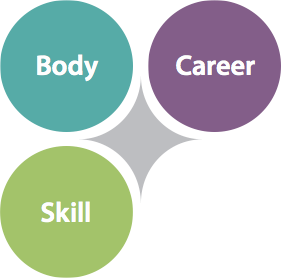 Public Speaking Tip 94: Women (and Men), Watch Out for Upspeak — It Can Hurt Your Career
Public Speaking Tip 94: Women (and Men), Watch Out for Upspeak — It Can Hurt Your Career
Upspeak can undermine your professional credibility, particularly if you’re female. That isn’t fair, but it’s a reality worth considering. Lose the upspeak.
 Public Speaking Tip 95: Find Out If You Have Unconscious Bias Against YOURSELF
Public Speaking Tip 95: Find Out If You Have Unconscious Bias Against YOURSELF
Unconscious bias is bias that you’re not aware you have. It can affect how you see your audience, and just as importantly, how you see yourself. Find out your bias.
 Public Speaking Tip 96: Use the Rule of 3 to Speak Off-the-Cuff (and for Everything Else, Too!)
Public Speaking Tip 96: Use the Rule of 3 to Speak Off-the-Cuff (and for Everything Else, Too!)
The Rule of 3 will help you shine in every public speaking situation, from media interviews… to off-the-cuff remarks… to knowing when to stop talking. Use the Rule of 3.
 Public Speaking Tip 97: Job Interview? Here Are the TOP 3 WAYS to Ace the Conversation
Public Speaking Tip 97: Job Interview? Here Are the TOP 3 WAYS to Ace the Conversation
For job interview success, the top three things to focus on are not defending yourself, doing your homework, and having a conversation. Ace the conversation!
 Public Speaking Tip 98: For a Successful Presentation, Get Your Attitude Together Before You Prepare Your Speech
Public Speaking Tip 98: For a Successful Presentation, Get Your Attitude Together Before You Prepare Your Speech
Want to give a confident, successful presentation? Get your attitude straight, put practicing in your flow, and go for what you know with an audience! Succeed.
 Public Speaking Tip 99: For a Successful Presentation, Practice Individual Ideas Throughout Your Day
Public Speaking Tip 99: For a Successful Presentation, Practice Individual Ideas Throughout Your Day
Your speech isn’t a collection of words. It’s a series of individual ideas that can be practiced separately, as needed, during the regular flow of your day. Practice.
 Public Speaking Tip 100: For a Successful Presentation, Go for What You Know with Your Audience
Public Speaking Tip 100: For a Successful Presentation, Go for What You Know with Your Audience
You’ve worked hard to create and practice a speech that will help your audience succeed. Now, when you stand before them, it’s time to go for what you know! Go for it.
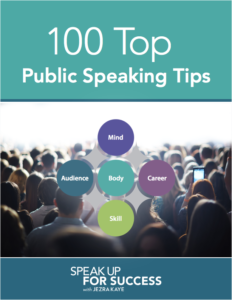 Buy 100 Top Public Speaking Tips: The Book!
Buy 100 Top Public Speaking Tips: The Book!
In 25 years of speaker coaching, I’ve helped my individual speaker coaching clients develop their strengths and skills become authentic and effective communicators.
Along the way, I’ve developed tips for everything from small talk to speaking up in meetings, from managing fear to making an impact.
And now, I’ve shared it all in 100 Top Public Speaking Tips: The Book. This beautifully designed PDF booklet is searchable, clickable, and categorized, so that you can find what you need, instantly.
